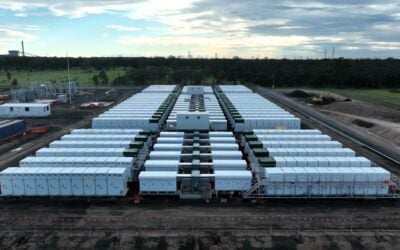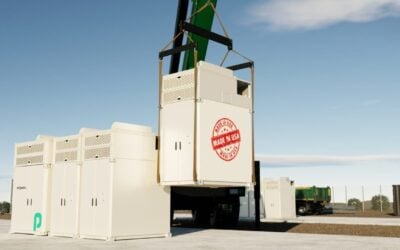A rendering of the testbeds at the UoW Clean Energy Institute. Credit: UoW/Chernoff Thompson Architects
Powin Energy will supply a 30kW/40kWh battery system for the University of Washington’s Clean Energy Institute.
The battery energy storage system (BESS) will be part of a new research facility under development by the institute.
Enjoy 12 months of exclusive analysis
- Regular insight and analysis of the industry’s biggest developments
- In-depth interviews with the industry’s leading figures
- Annual digital subscription to the PV Tech Power journal
- Discounts on Solar Media’s portfolio of events, in-person and virtual
“Powin Energy’s battery energy storage system will be a critical tool for research and innovation at our new Washington Clean Energy Testbeds,” said Venkat Subramanian, professor of chemical engineering and clean energy, University of Washington.
“We look forward to having our students, faculty, and the cleantech community use the Powin BESS to measure the performance of energy devices and algorithms when integrated into real and simulated system environments.”
Subramanian is looking to experiment with battery management systems to determine their influence on the performance and longevity of stationary storage hardware. Powin is developing the related testing protocols and will share the data produced from the research.
“We’re excited about this installation at the University of Washington because it will give our technology a more rigorous workout than most real-world installations that don’t approach the far ends of usage parameters,” said Virgil Beaston, CTO, Powin Energy. “Our Battery Pack Operating System (bp-OS) balances batteries for energy storage systems in a completely unique way compared to the battery management software designed for electric vehicles that most other storage companies use. This project has the potential to return some incredibly interesting data that could confirm our own internal testing.”
The Clean Energy Testbeds will open in early 2017 with “fee for use” facilities available to academic and corporate clients.






